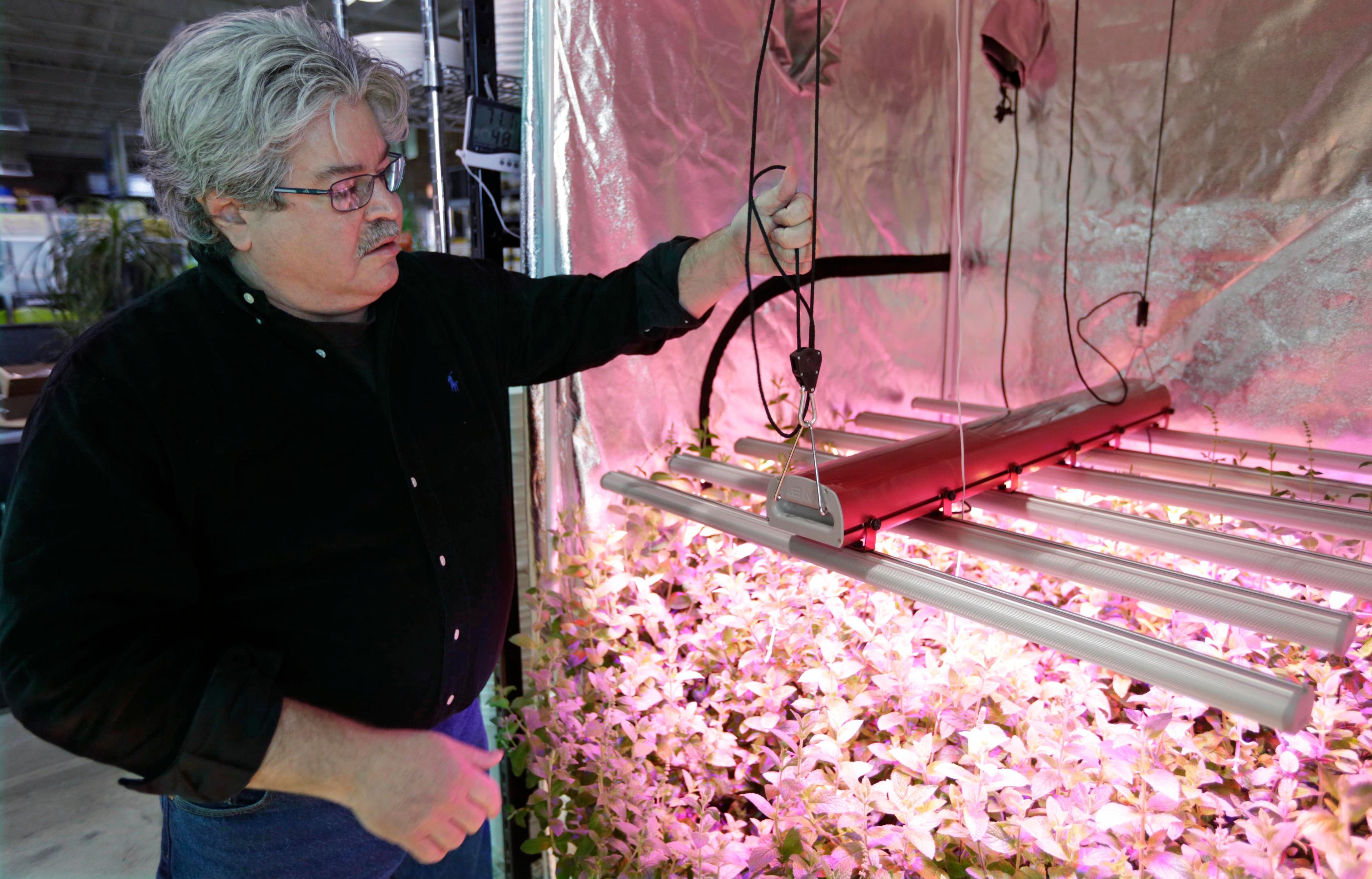
As more states legalize medical marijuana, there's one stage in the process nobody wants to talk about: the part where people still have to break the law.
After growers obtain licenses, plan for security and build facilities, they then must obtain their first seeds or cuttings — while regulators turn a blind eye.
"It has to be hush-hush," said Bradley Vallerius, an attorney focused on the emerging industry in Illinois. "I've seen the moment where the client realizes this is a problem" — and wonders how they're supposed to get started.
A 'patchwork of laws'
The situation is known as the "immaculate conception" or the "first seed" problem. Those involved see it as an absurd consequence of the nation's patchwork of laws, with 23 states allowing medical marijuana sales, Colorado and Washington state allowing recreational use and a federal prohibition in place.
While marijuana may not be hard to find, getting the first seeds for medical operations often involves either descending into the underground market or crossing state lines — a violation of state and federal laws.
One Colorado grower, Toni Fox, says she ordered her first seeds for a medical crop five years ago from advertisers in High Times magazine. If they showed up at all, they came hidden in packages with T-shirts and coffee mugs.
In Illinois, where medical marijuana growing permits will be granted later this year, suit-and-tie capitalists are connecting with black-market growers for seeds or cuttings. Online, seed banks in the Netherlands and Canada promise discreet shipping in unmarked packages.
Regional enforcement varies
Most state laws are silent on the issue, forcing officials into a "don't ask, don't tell" stance. In Washington state, growers have a 15-day, no-questions-asked period during which they can bring non-flowering plants into their operation, which must then be bar-coded and registered.
In one Seattle case, a medical grower trying to break into the recreational market accumulated more than 2,000 plants. Police, responding to complaints about the smell, seized all but 45 plants.
The grower, Matthew Segal, faces no charges but estimates the raid cost him about $1 million. He has since sold one of his marijuana dispensaries and put his house up for sale to help cover the losses. "When (state governments) look the other way, it turns the regulations into Swiss cheese," Segal said.
In Nevada, where the first medical marijuana business certifications will be awarded next month, state law allows registered patients, who can legally grow up to 12 plants, to sell plants to a cultivation center — just once.
"We've learned from what a lot of other states have done. We've tried to avoid a lot of the pitfalls," said Pam Graber, spokeswoman for the Nevada Medical Marijuana Program.
But the Nevada law says nothing about where patients are supposed to get seeds or plants. "We cannot offer suggestions," Graber said.
Illinois officials danced around the question at a meeting for aspiring businesses.
"We're expecting that any applicant that is proposing an operations plan is going to have a plan for getting the operations started," program director Bob Morgan said when pressed for details on acquiring startup seeds or plants.
State Rep. Lou Lang, who sponsored Illinois' medical marijuana law, concedes lawmakers knew there was an issue. "We did not address it in the bill on purpose," he said. "We can't sanction in a law doing an illegal act."
Out-of-state seeds are risky
David Ittel has sold indoor gardening supplies for decades at shops in Illinois and Wisconsin. Ittel won't say that the light timers and water pumps he sells have been used in illegal operations, but is meeting with aspiring medical marijuana business owners in Illinois.
"I've had people ask me: Can I help them get seeds? That's not what I do," Ittel said.
He believes some business owners will get plants in Illinois on the black market. Another source will be out-of-state growers in legal markets. Ittel believes starter plants will be brought into Illinois covertly.
With its thriving recreational market, Colorado would seem a likely source. But it's risky for growers to divert plants out of state, cautioned Colorado Director of Marijuana Enforcement Lewis Koski.
"I'm not aware of a lawful way for that to occur," Koski said. "A business could have their license revoked. The members of the company could face criminal charges."
Ultimately, there will need to be a federal solution, said Chris Lindsey, legislative analyst for the Marijuana Policy Project, a national group that supports regulated marijuana.
Otherwise, he said, "there isn't much of an option for states except to look the other way and understand that there has to be a way for regulated businesses to operate."
Sara Gullickson, of Newton, Massachusetts-based consulting company DispensaryPermits.com, doesn't advise clients on the question. But she knows the score.
"They have to get (seeds or plants) from another state," she said, "and it's not legal, but that's what they do."









